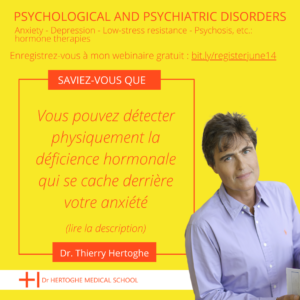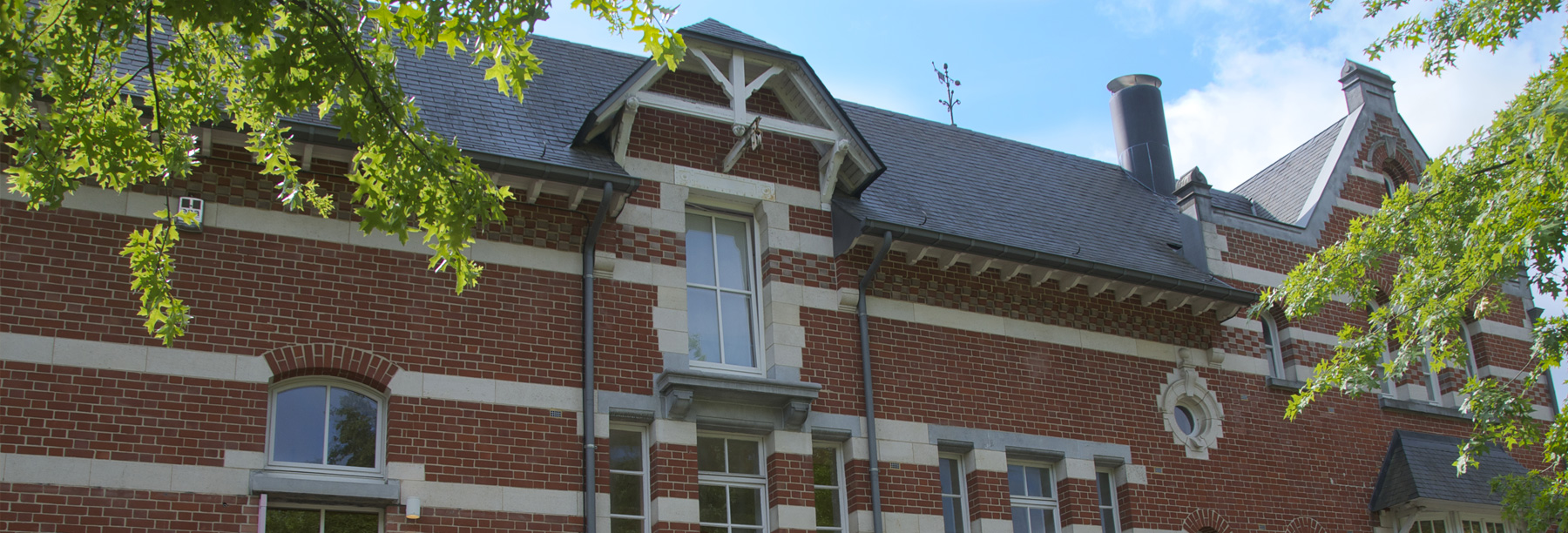Déficits hormonaux & dépression

L’incidence élevée de la #dépression peut être causée par des difficultés de la vie courante telles que le #stress et les polluants.
Une #diététique équilibrée, riche en #nutriments bénéfiques, peut soulager les formes modérées de dépression, mais la #thérapie hormonale guérit souvent les formes plus sévères de dépression chronique et persistante.
Quelle hormone pour quel type de dépression ?
| L’hormone thyroïdienne traite les états dépressifs qui sont plus prononcés le matin au réveil (dépression matinale) et qui diminuent fortement ou disparaissent dès que le patient se lève du lit. Mais ils réapparaissent au repos, en position assise ou allongée dans la même position.
Lorsqu’un patient atteint d’#hypothyroïdie bouge, il se sent mieux grâce à un meilleur apport de sang et d’oxygène au cerveau.
| La dépression par carence en œstrogènes s’accompagne d’une humeur basse permanente.
+ La dépression par carence en œstrogènes s’accompagne d’une déprime permanente.
+ Pas d’enthousiasme, pas d’excitation
+ Perte de féminité
+ Pas d’intérêt et peu d’énergie pour faire des choses
| Le déficit en #Testostérone est une dépression typique chez les hommes. Elle est liée à une importante baisse d’humeur pendant la journée :
+ Irritable, grincheux
Irritable, grincheux + Pensée rigide
+ Manque évident de courage pour faire les choses et affronter les situations conflictuelles
+ Hésitation et beaucoup d’inquiétude
Hésitation et beaucoup d’inquiétudes + Perte du comportement masculin
| Le déficit en cortisol est lié à des sentiments dépressifs occasionnels légers à sévères dans des conditions de stress. Il entraîne généralement des pensées négatives, une dépréciation et une tendance à réagir de manière excessive aux événements stressants (colère et crises d’angoisse).
| Le déficit en DHEA s’accompagne d’une dépression typique caractérisée par des sentiments dépressifs légers permanents, les patients sont moins joyeux et plus froids.

